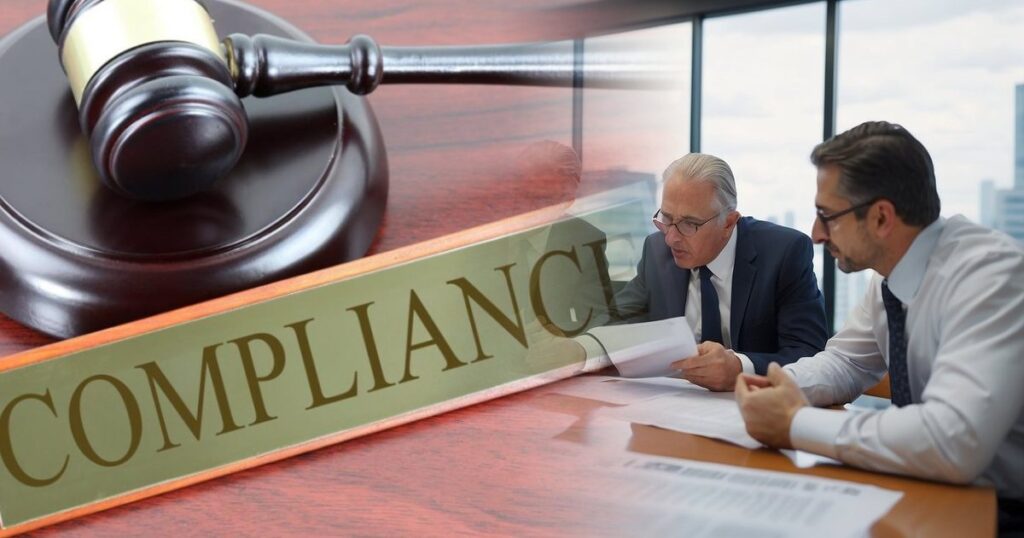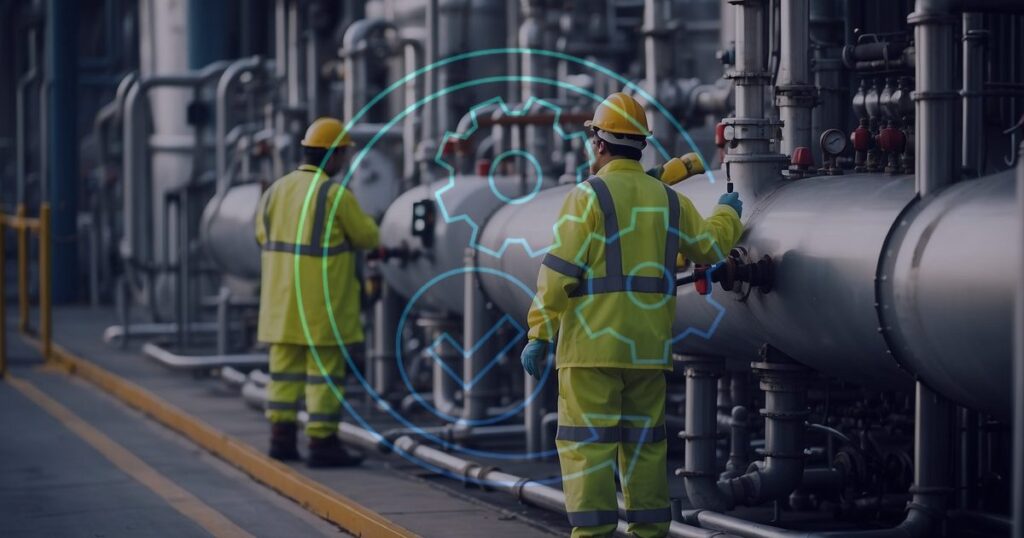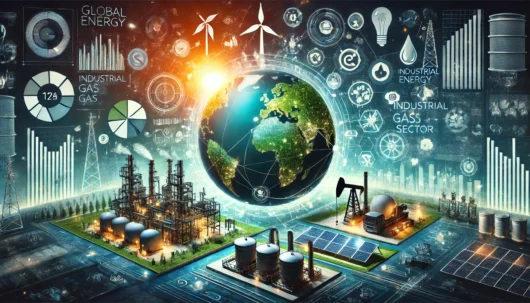In industrial gas supply, regulatory compliance is key in ensuring the safety, health, and environmental stewardship of energy resources such as oil and natural gas. Governing bodies, including the Environmental Protection Agency (EPA) and the Federal Energy Regulatory Commission (FERC), set stringent regulations that guide the operations and mission of gas supply entities. These standards protect the public and the environment and instil confidence in the market during volatile periods, such as the energy transition or unexpected events like the COVID-19 pandemic.
Adherence to these regulations is mission-critical for the success and legality of gas suppliers. Compliance ensures the minimisation of hazardous emissions, safeguards against accidents and supply chain disruptions, and strengthens resilience to shifts in demand and supply imbalances. As the industrial gas sector navigates challenges posed by climate change, regulatory frameworks continue to evolve, calling for a dynamic response from industrial gas suppliers. Additionally, departments such as Energy and Transportation play pivotal roles in shaping policies that impact gas suppliers’ operations.
Key Takeaways
- Regulatory agencies set and enforce standards for industrial gas supply to protect health and the environment.
- Compliance with regulations ensures operational integrity and market confidence.
- Evolving policies require suppliers to adapt to changes in climate and energy demands.
Legal Framework and Regulatory Bodies

In the context of industrial gas supply, regulatory compliance hinges on a web of legal requirements and authorities that oversee operations. Understanding these frameworks is crucial for ensuring gas supply activities meet legal and safety standards.
Legislation and Jurisdiction
In the United States, the legislative framework governing the industrial gas supply includes a variety of federal and state laws. Jurisdiction varies, with activities on federal lands primarily governed by federal laws, while a combination of both may govern state and private lands. Notable legislation includes the Clean Air Act, enforced by the Environmental Protection Agency (EPA), which regulates air emissions from stationary and mobile sources.
Key Regulatory Agencies
Several federal agencies are involved in the regulation of the industrial gas supply:
- Federal Energy Regulatory Commission (FERC): Oversees interstate gas transmission.
- Department of Transportation (DOT): Regulates gas transportation safety.
- Department of Energy (DOE): Ensures the nation’s energy security.
- Environmental Protection Agency (EPA): Enforces environmental laws.
These agencies have the legal authority to issue relevant regulations and ensure compliance with federal laws.
Compliance and Enforcement
Compliance with regulations is enforced through inspections, audits, and penalties. The agencies have the power to issue fines and other sanctions for non-compliance. The Department of Transportation, for example, enforces safety standards in gas transportation. Moreover, the Environmental Protection Agency (EPA) plays a significant role in regulating and enforcing environmental standards for the industrial gas sector, ensuring that your operations meet clean air and water standards.
Executive orders may also influence regulatory practices by directing federal agency priorities. You must stay updated with any new executive orders that could affect your compliance strategies in the gas supply industry.
Operational Compliance and Best Practices

To ensure the integrity of industrial gas supply like the Ramdon products, you must navigate a complex regulatory landscape focused on maintaining high standards across all operations. The following subsections detail the compliance requirements and best practices critical to your operation.
Infrastructure and Development
When planning and constructing infrastructure, you must consider the impact on land, air, and water resources. Apply proactive measures to prevent soil erosion, protect waterways, and control emissions during the construction and operation of your facilities. All these activities should adhere to the detailed reporting requirements to minimise environmental impact.
- Land Use: Respect land rights and conduct thorough inspections to uphold environmental standards.
- Air Quality: Implement controls to manage emissions, leveraging research to improve continually.
- Waste Management: Maintain strict waste handling and disposal protocols to protect the environment.
Health, Safety, and Environmental Protection
Your primary responsibility is to provide a safe work environment while minimising environmental hazards. Health and safety protocols must be in place to protect workers and the community from exposure to risks. Regular training on these matters is essential to promote compliance and readiness.
- Create a culture of safety through continuous education and adherence to industry standards.
- Conduct regular Health and Safety Inspections to ensure a hazard-free operation.
Industry Standards and Performance Metrics
Adhering to industry standards like API RP 1173 is non-negotiable in achieving operational excellence. Performance metrics allow for transparent compliance monitoring, enabling you to identify improvement areas and ensure that best practices in operational maintenance are consistently applied.
Performance Standards to Monitor:
- Pipeline Integrity
- Distribution Efficiency
- System Reliability
Emergency Preparedness and Response
Prepare for emergencies by developing a comprehensive response plan. Conduct regular drills to ensure quick and effective action during a crisis. Your preparedness minimises risks to both your operation and the surrounding communities.
- Emergency Protocols: Immediate action plans for various crisis scenarios.
- Response Training: Regular drills to keep teams prepared for a timely response.
By committing to regulatory compliance, you secure the reliability of your industrial gas supply and safeguard the health and environment of the communities you serve.
Frequently Asked Questions
In this section, you’ll find insights into the complexities of regulatory compliance within the industrial gas supply sector.
What are the common regulatory compliance challenges faced by the gas supply industry?
Your industry deals with various challenges, from maintaining infrastructure integrity to adhering to evolving safety standards. Navigating the regulations outlined in 49 CFR Parts 191 and 192 can be particularly demanding, requiring continuous monitoring and updates to compliance strategies.
How do federal regulations impact the natural gas sector in the United States?
Federal regulations, such as those enforced by the Pipeline and Hazardous Materials Safety Administration (PHMSA), are crucial in dictating the safety and operational standards you must meet. The rigorous guidelines established under 49 CFR Part 193 for LNG facilities are a testament to such impacts, ensuring public safety and environmental protection.
What are the key international frameworks governing oil and gas industry operations?
You must be attentive to international frameworks, such as the Extractive Industries Transparency Initiative (EITI) and the International Petroleum Industry Environmental Conservation Association (IPIECA) guidelines. These frameworks set the baseline for responsible industry conduct and help companies adhere to globally recognised standards.
How do state-level regulations differ in their oil and gas industry oversight?
State regulations can vary significantly, imposing different permitting, reporting, and operations requirements. You must be aware of the specific state-level mandates that govern your activities, as these are often more stringent than federal requirements and can vary widely from one state to another.
What are the latest significant changes to oil and gas industry regulations?
Staying updated on regulatory changes is critical for compliance. Recent shifts may include amendments in safety protocols, environmental impact assessments, and emergency response strategies. Keeping abreast of these changes is essential to maintain operational compliance and industry best practices.
Which governmental bodies are primarily responsible for regulating the oil and gas industry?
You’ll primarily interact with federal agencies like the Federal Energy Regulatory Commission (FERC) for natural gas transmission and export matters and PHMSA for pipeline safety oversight. Understanding each agency’s role in your regulatory landscape is vital to successfully navigating compliance complexities.


